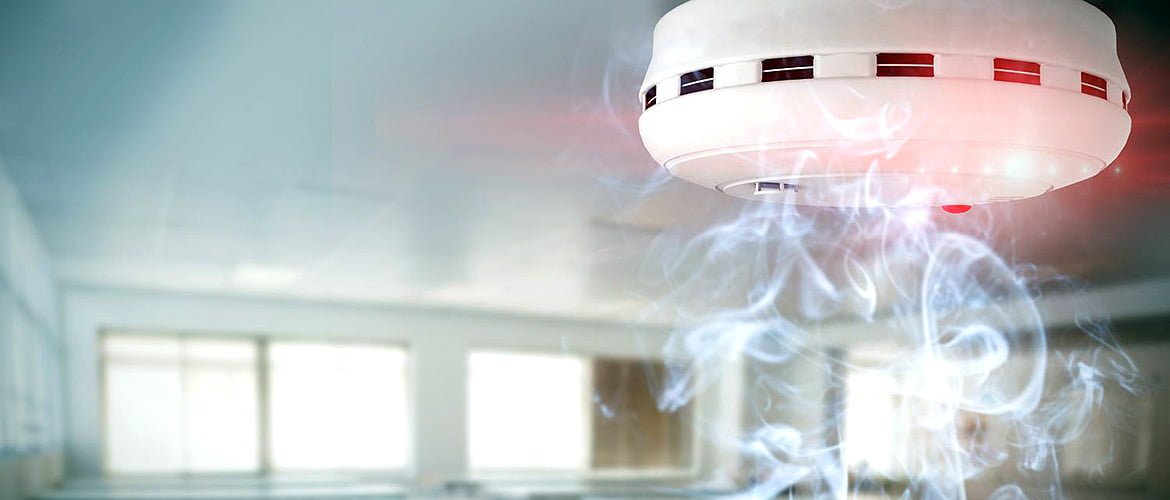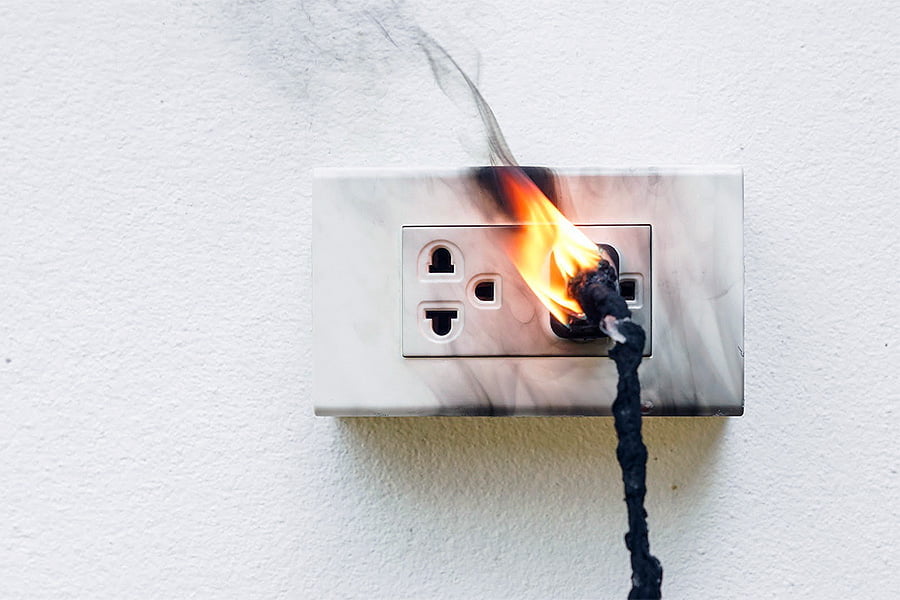
House Fire Prevention month is the perfect time to talk to your family about fire safety. This includes testing your smoke alarms, changing the batters or upgrading to 10-year sealed battery alarm for hassle-free protection, and escape planning.
Being prepared is your best defence against a fire in your home. Less than 50% of homeowners have an escape plan. So minimizing your risk of fire-related injury by following these safety tips can help your household prepare for a fire emergency.
Test your smoke detectors
60% of consumers do not test their smoke and CO alarms monthly, it is important to pay attention to the state of your smoke alarms and CO detectors. It’s easy to forget regularly maintaining your smoke alarms, but it’s worth setting a reminder on your phone’s calendar to remind you to get it done. 3 of every home fire deaths resulted from fires in homes with no smoke alarms. Smoke and CO alarms should be placed on every level of the home, including the basement, as well as inside and outside each bedroom. Fire alarms should also be placed on every level of the home, especially in the kitchen and garage.
Inspect heating sources
Regardless of your primary heating source within your home, annual inspections will reduce the risk of fire. Remember to change furnace filters regularly to avoid build up of dust and lint that can easily catch fire.
Carefully inspect space heaters before and after each use and place them at least three feet away from anything combustible, such as fabric or paper. Check your water heater as well, especially those that run off gas and use a pilot light. Make sure nothing is blocking the element.
Keep the stove and oven clear
Most commonly house fires start from the kitchen. Ensure that nothing is left near the stove or oven that is flammable, such as curtains, tea towels, or cookbooks resting on the stove top. Always wipe down your stove so your cooking surfaces are clean and free of debris, especially if heating elements are exposed.
Don’t leave the kitchen unattended
Never leave a hot cooking surface unattended. If you have to leave the room and there’s an electric griddle turned on turn off the griddle first. Make sure that any pot handles cooking on the stove are turned inwards at all times so they can’t accidentally be knocked or splatter grease on nearby surfaces.
Check the dryer
If you have a gas-powered clothes dryer having it inspected once a year to make sure all of the connections are secure can minimize your risk of fire. No matter what type of dryer you have, always clean the lint filter after a load is finished. Regularly check behind and around the dryer for pockets of lint or items of laundry that have fallen under or behind. You can hire a professional to thoroughly remove all lint and debris from the lint trap area and all external dryer vents at least once a year.
Maintain electrical cords
Regularly check for frayed wires and the condition of electrical cords. Repair or replace damaged cords immediately. Electrical cords can produce heat so it’s important not to trap them under a rug or between the furniture and the wall. When you’re not using them, unplug any appliances that feel warm to the touch when turned on. Use extension cords sparingly as a temporary fix, as they can deteriorate quickly with continuous use. Make sure that any extension cords you use are rated for the wattage of the device they’re powering. When it comes to power strips and surge protectors, don’t try to cut corners. Trusted names are your go-to.

Be aware of your shutoffs
It is essential to know exactly where your power shut offs for all utilities, including gas lines, circuit breakers, appliances and fuses. Post clear shutoff directions next to each one. Keep a non-sparking tool handy for turning off gas.
Be candle conscious
Never leave candles unattended and always keep them away from flammable items like blankets and curtains. Place candles in secure, tip-proof holders and extinguish them before leaving or going to sleep.
Be a conscientious smoker
Always dispose of used cigarettes in ashtrays or other safe receptacles when smoking either inside or outside. If you are smoking inside, avoid smoking in bed or while lying on the couch so you don’t accidentally fall asleep with a lit cigarette. When smoking outdoors, never leave used butts on the ground.

Know your location
Few people realize that emergency operators cannot always trace your location if you call from a cell phone. They can estimate your location based on signals bouncing off cell towers, but firefighters still need an exact address. It’s important that every member of the household understands how fire response work and to know your exact address.
Any fire damage can be devastating but learning fire preventative measures can minimize the risk of fire in your home. Make these practices a part of your routine, including creating a house fire prevention plan and review it regularly with your family.
Contact a Royal City REALTOR® today!
Looking for an experienced REALTOR® that specializes in the local real estate? At Royal LePage® Royal City Realty we are focused on helping you unlock your future.
